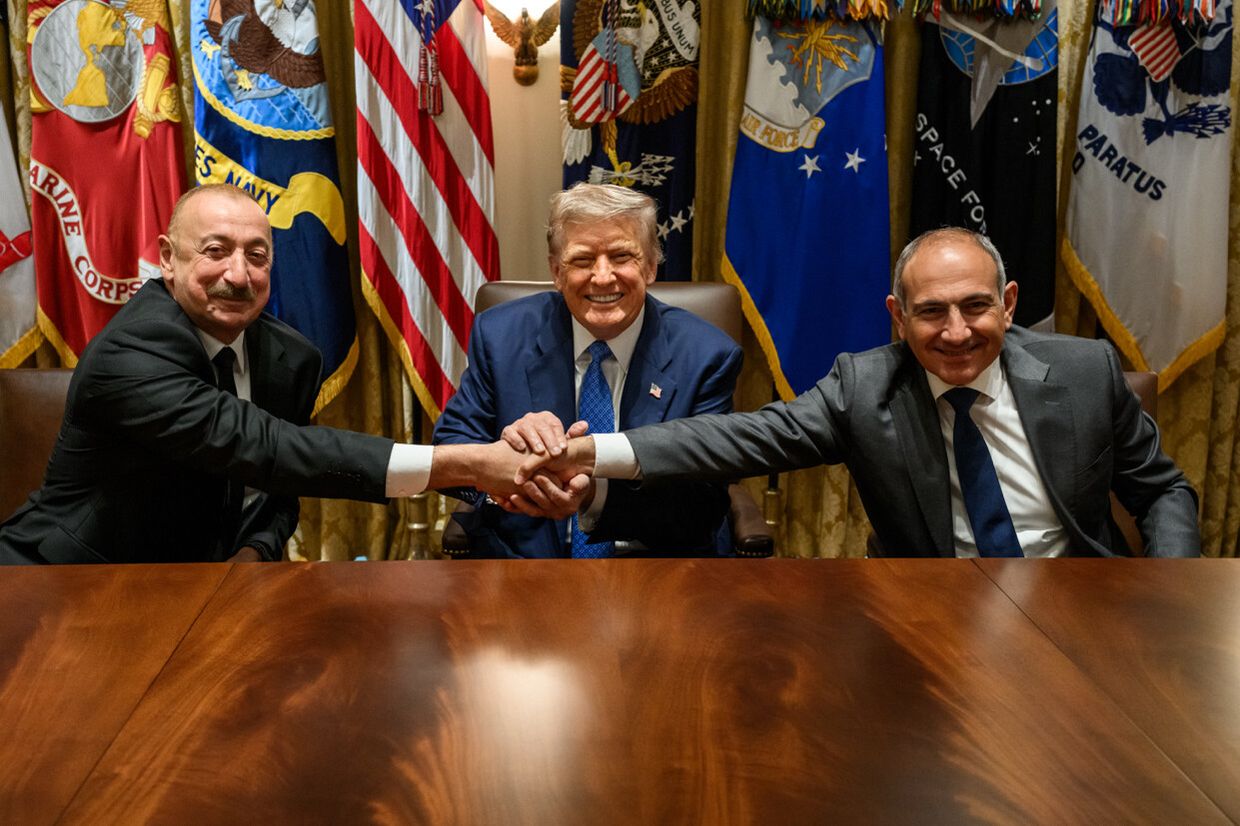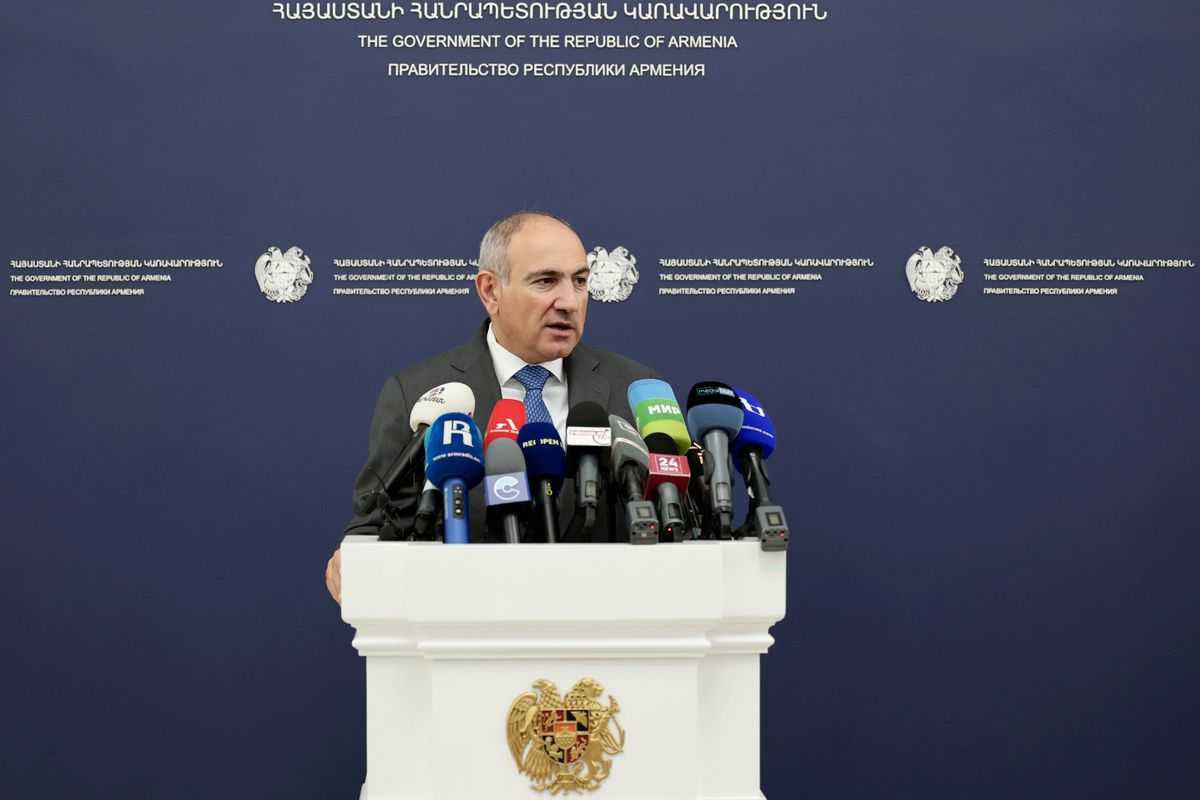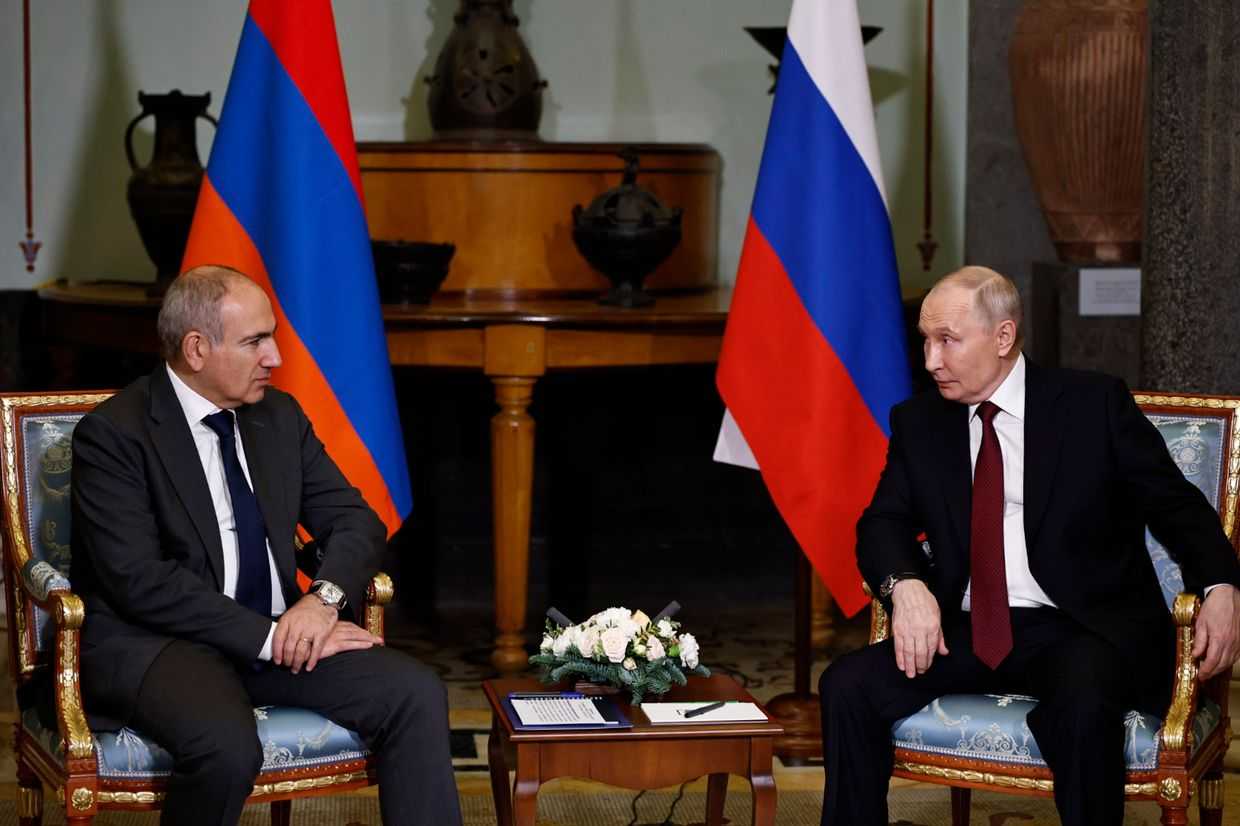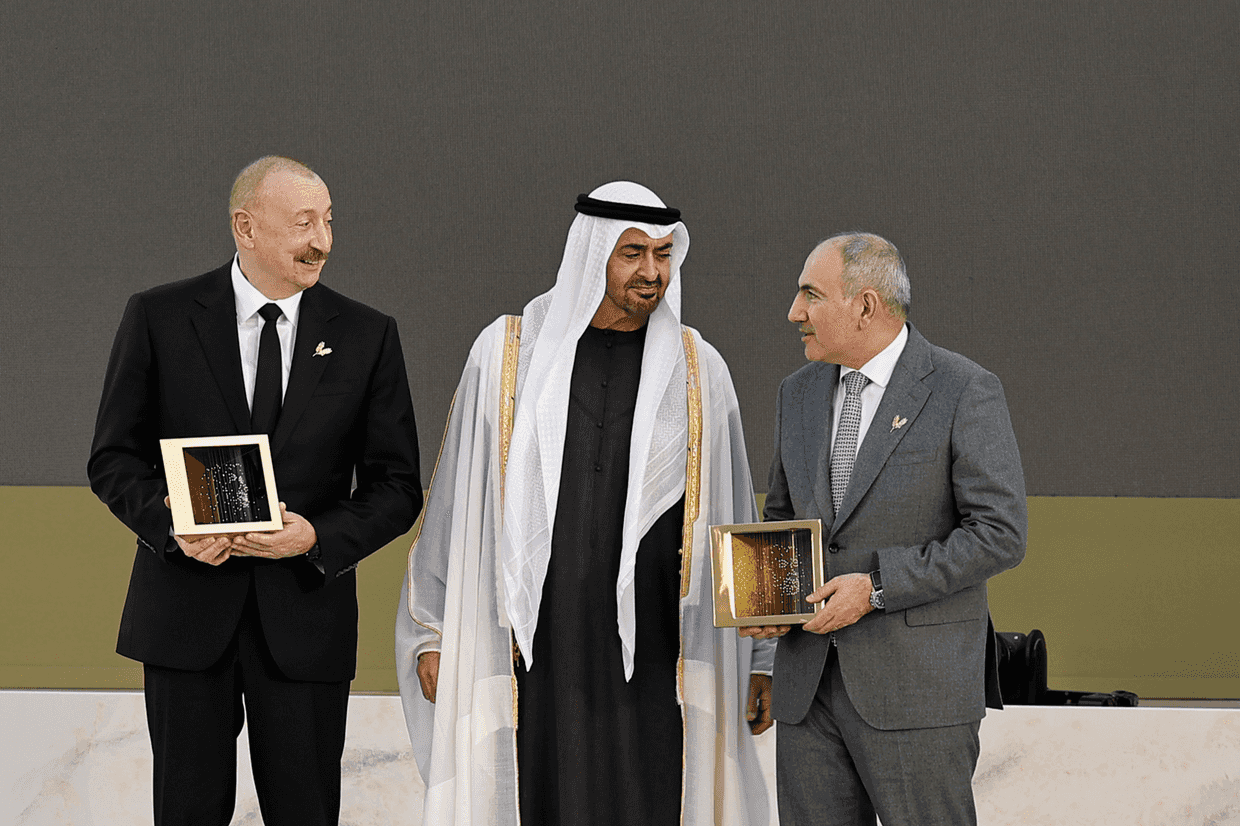
Russian and Iranian officials have begun speaking about the Trump Route, planned to connect Azerbaijan and its exclave of Nakhchivan through Armenia, in increasingly favourable terms. Both countries have long been sceptical of plans for the US to be involved in the project.
On Thursday, Iranian Foreign Minister Abbas Araghchi said that despite earlier concerns from Tehran about the plans, ‘what Armenia is now telling us is that they have complied with all of Iran’s red lines’.
‘No American forces will be stationed on the Iran-Armenia border’, Araghchi said.
Without naming which specific plans he was referring to, Araghchi said that Tehran had been concerned that Armenia’s Syunik Province would be ‘seized’, but then the project was ‘cancelled’.
Separately, Armenian Deputy Foreign Minister Vahan Kostanyan said in an interview with the Iranian media outlet Press TV the possibility third-party security forces would be deployed along the Iran–Armenia border is ‘out of the question’.
Araghchi’s comments were a step down even from similar conciliatory remarks made by Iranian President Masoud Pezeshkian days earlier, who said that the plan met Iran’s demands, but ‘the only concern is the desire of Armenian and American companies to build this road’.
Contemporaneous statements by other Iranian officials were less welcoming of the plan.
Ali Akbar Velayati, a senior adviser to Supreme Leader Ali Khamenei, said that Iran would prevent the creation of a US corridor in the Caucasus region — regardless if Moscow joins Tehran in blocking the project.
He added that such a corridor owned by the US would ‘turn into a graveyard of the mercenaries of Donald Trump, not a route owned by the US president’.
Russia’s evolving position
Like Iran, Russia has long been opposed to any kind of significant American presence in the region, and had previously proposed being directly involved in helping manage a potential route from Azerbaijan to its exclave of Nakhchivan.
The Kremlin repeatedly criticised floated plans for the US to instead manage the project ahead of last Friday’s meeting, often characterising the proposals as encroaching on Armenia’s sovereignty.
Following last Friday’s meeting, Russian Foreign Ministry spokesperson Maria Zakharova said that the meeting ‘merits a positive assessment’ and that Russia hoped ‘this step will advance a peaceful agenda’.
However, she also issued some slightly veiled criticism of US involvement, saying that ‘until recently, Baku and Yerevan have maintained that they prefer direct dialogue without third-party mediation’.
On Friday, Russian Deputy Foreign Minister Aleksei Overchuk went even further in the seemingly approval of the plan.
‘We view this issue in the following context, Armenia is our strategic ally, and if Armenia believes that something is good for them, then of course we support Armenia’.
Overchuk’s comments came on the eve of a high-stakes meeting between US President Donald Trump and Russian President Vladimir Putin in Alaska on the peace process between Russia and Ukraine.
Ahead of the meeting, the White House has been telegraphing it would offer significant concessions to secure a peace deal. While the Kremlin does not appear to have softened its own demands related to Ukraine.












